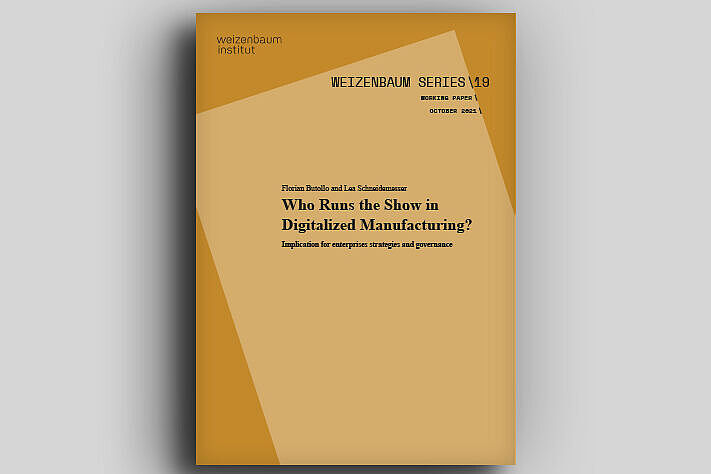
Industrial internet platforms as oligopolies? A new study on the future of digital platforms in the manufacturing sector
10/22/2021Weizenbaum researchers investigate the reorganization of power relations in the digital transformation of global value chains
In their working paper “Data and Digital Platforms in Industry: Implication for enterprises strategies and governance”, Florian Butollo and Lea Schneidemesser from the Weizenbaum Institute research group “Working in highly automated, digital-hybrid processes” examine emerging digital platforms in manufacturing value chains. By drawing on intangible asset analysis and platform business model theories, they develop an understanding of the importance of data in global value chains. The authors use data from a qualitative empirical study based on 45 interviews with industry insiders working for platforms operating in the German market. These are platforms focused on production and sales.
The main question of their research is to find out whether, through the platformization of corporate relationships, industrial internet platforms emerge as actors that keep most of the profits from higher productivity or lower transaction costs for themselves. Secondly, they want to find out whether there are tendencies toward an oligopolization in the industrial sector due to network effects, which leads to an accumulation of power on the part of the platforms.
Their analysis shows that platforms primarily function as service providers and/or intermediaries supporting manufacturers in the use of data. Currently, the relationship between platforms and manufacturers is characterized as a balanced symbiosis rather than an asymmetry of power, as both parties benefit from additional revenue streams by using data. In the long term, however, a stronger dominance of the platforms could emerge, as oligopolization processes are likely.